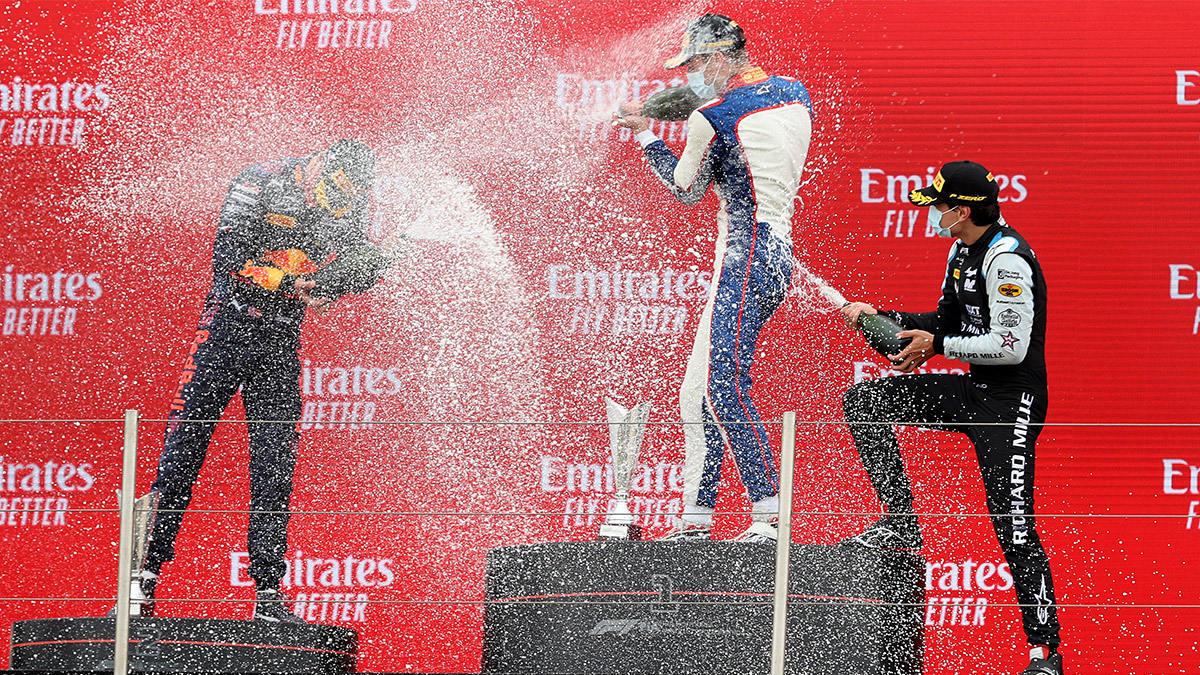Portfolio analysis: The three largest ASX small cap holdings at Westferry Investment Fund

Pic: Clive Rose via Getty Images
Markets are holding at or near all-time highs and reporting season is around the corner – a good time to talk stocks with pro investor Peter Johns from the Westferry Investment Fund.
Stockhead caught up with Johns last week to discuss the Westferry portfolio and the investment rationale behind his three largest holdings.
Westferry – Investment approach
Johns runs a diversified portfolio with a mix of debt and equity investments. He also allocates some capital to other Australian investment funds run by different stock pickers.
But his core focus is in ASX small caps — scanning the investment landscape to find undervalued stocks well-positioned for medium to long-term growth.
After a successful run as a solo investor, Johns founded the Westferry fund in 2016, and since then has delivered an impressive annual return of over 25% for investors.
He says small cap investors have an advantage where key announcements slide under the investor radar.
“A lot of announcements indicate a turnaround or are more significant than the market realises,” he said.
“And it’s about assessing those faster than other people, which is how I made my early money.”
Key updates to look out for are a shift from negative to positive operating cash flows, or asset sales that strengthen the balance sheet.
“If you’ve done it long enough you can generally assess the significance (of new announcements),” he said.
“And you can’t really do that with ASX300 stocks because everyone’s watching them. But with smaller stocks there’s not many eyeballs on the announcements.”
With that in mind, Johns provided detailed analysis of the top three holdings in the Westferry fund and the rationale for their overweight positions.
Westferry Fund – top holdings
PTB Group (Pacific Turbine Brisbane) – ASX:PTB
The largest holding at Westferry, PTB provides specialised engine repair and overhaul services for the aviation sector, with a focus on turboprop (PT6A and TPE331) plane engines.
In car terms, PTB is like a “boutique mechanic, rather than a Toyota service centre”, Johns says.
But unlike cars, the company has a competitive moat with the requisite licences needed to meet the strict regulatory oversight applied to plane maintenance.
PTB operates out of its headquarters in Brisbane but “where I saw the benefit initially was in their expansion to the US”, Johns said.
Then, the pandemic hit.
“COVID-19 smashed them and that’s where I ended up taking a much larger position than I otherwise would have,” he said.
The investment adage ‘be greedy when others are fearful’ paid off.
“There was a lot of panic selling because they did a big oversubscribed raise in January 2020, where I only got about 10% of the allocation I asked for,” Johns said.
“That was at 69c then literally six weeks later, you could buy as much as you wanted on-market in the low 30s.”
“So that was my best win from that period because I knew the type of planes they service weren’t as badly affected by Covid as passenger airlines.”
The company derives incomes from engine leasing, but its main revenue channel comes through agreements with airlines where PTB charges a fixed cost in return for on-demand engine servicing as problems arise.
“That differs from the old model where service providers will sit in a factory and wait for the airline to call,” Johns explained.
“It’s inefficient and still in place at their US acquisition, so that’s where I think they have a great opportunity to convert customers in that market.”
In addition, Johns said PTB is operating with a strong balance sheet for the first time in over a decade.
The company listed in the heart of the 2008 financial crisis with a high debt profile, and spent the next 10 years using profits to pay it down.
“It’s only in the last two years they’ve really had some extra capital to allocate,” he said.
Still, it’s been a tough slog for aviation and the group’s US growth strategy faced holdups as CEO Craig Baker was unable to get over there until earlier this year.
However, PTB maintained profitability and Johns sees upside for the stock from here as both “a value play and a recovery play”.
PTB Group share price today:
For the second largest holding in the Westferry portfolio Johns switched his focus to IT, which is indicative of the fund’s fairly diversified allocation strategy (ex-resources).
CPT Global doesn’t often get a mention among the big names in Australia’s listed tech sector, but for Johns that’s exactly why it has an advantage.
The company provides consulting services for large clients which – mainly for security reasons – are still required to maintain their own internal mainframe systems.
It’s a unique niche in a sector where valuation multiples can surge around buzzwords like ‘SaaS’ (software-as-a-service), ‘recurring revenue’ and ‘cloud services’.
CPT runs a consulting model that isn’t based on recurring income. However, it’s a reality that “both now and in the decades to come, certain companies will need to maintain an inhouse mainframe rather than switching to the cloud”, Johns said.
Its contracts are typically on a rolling basis of about six months which does create turnover risk, but Johns said it isn’t reliant too heavily on any one client.
CPT’s client suite includes medical insurance groups, banks, general insurers and large government departments in Australia and the US.
Earlier this year it inked new deals with Services Australia (Centrelink) and the ATO.
“It’s probably ‘uncool’ compared to others in the space, but there’s a dwindling number of companies who can do what they do,” he said.
Like PTB Group, he also flagged a strong growth opportunity in the US market.
Founder and CEO Gerry Tuddenham is the “tech wizard” behind the platform, while his son Luke is CPT’s President for the Americas and Europe. Luke will take over as CEO in November.
“I’ve spoken to both of them at length and I think Luke has a really polished skill-set in terms of being able to grow the business over there,” Johns said.
The company has also executed on a fairly strong earnings turnaround over the past 12-24 months.
“My view is the market possibly thinks that’s a temporary thing, but I really think they can maintain more sustainable profits and dividends in the years ahead,” Johns said.
CPT Global share price today:
Rounding out the top three in the Westferry portfolio is AF Legal Group, a national law firm which specialises in family law.
Experienced ASX investors would be wary of firms providing legal services through a listed company model, in the wake of high-profile casualties such as Slater & Gordon and Shine Lawyers.
How is AFL different?
“For starters, family law is a massive market. And secondly there’s no major competitor in the space – it’s a cottage industry,” Johns says.
In that context, AFL is the only player pursuing a roll-up approach to a scaled business model.
It’s been tried before without success, but Johns – a practicing criminal lawyer before he began his investment career – says there are factors specific to family law that make it more suitable to the strategy.
Typically, people only use family lawyers once – perhaps twice at most (lol).
“It means you don’t build up a stable of clients, so you don’t run the risk of models where you have a star doctor or lawyer who leaves and takes all the clients with them,” Johns said.
Companies like S&G and Shine also got into trouble with how they managed WIP (work in progress), which is recorded as an asset on the balance sheet.
“They operated a ‘no win-no fee’ model and you’d end up with these huge WIP amounts on the balance sheet, but it was never clear if or when it would convert to cash,” Johns said.
AFL alleviates that cash-flow issue by running a model where bills go out fortnightly and cash is paid up-front in trust, Johns said.
And like PTB and CPT, quality of management also plays a key role in his assessment of AFL’s value.
“In my view, (AFL managing director) Grant Dearlove is one of the most polished and impressive CEOs on the ASX,” Johns said.
“A major part of running law firms is managing people and I think he’s got the ability to incentivise staff and keep them engaged.”
Westferry’s AFL investment has been a strong performer, as the fund first started buying around 10c (current price: 55c).
The stock has pulled back from recent highs above 60c, but “on a 3-5 year view I think Grant’s going to build something really impressive”, Johns said.
“I also think it’s a fairly recession proof business. On a micro level it’s obviously a challenge to integrate new lawyers, and they don’t quite have optimal scale at the moment,” he added.
“But they’ve just made two more large acquisitions, so I think soon they’ll be at that scale where you don’t have the earnings volatility.”
“I reckon of the three stocks I discussed AFL might have the most price volatility in the near term, but it’s probably also the one that I’m most positive about over the longer term,” Johns said.
AF Legal Group share price today:
The views, information, or opinions expressed in the interviews in this article are solely those of the interviewees and do not represent the views of Stockhead.
Stockhead does not provide, endorse or otherwise assume responsibility for any financial product advice contained in this article.
Related Topics
UNLOCK INSIGHTS
Discover the untold stories of emerging ASX stocks.
Daily news and expert analysis, it's free to subscribe.
By proceeding, you confirm you understand that we handle personal information in accordance with our Privacy Policy.








